You’ve probably heard of intermittent fasting before, and you might even know someone who’s doing it. The idea is simple: you only eat within a certain time window each day, and the fat supposedly just melts right off.
Proponents of intermittent fasting, or IF for short, claim that it can not only help you lose weight but improve lipid profile, boost your growth hormone, and even help fight cancer. Just what does the evidence say, though? Are these claims fact or mere bro science?
Well in today’s article, we’d like to take a science-based approach to intermittent fasting, so that you can make your own educated decision. Here’s the BarBend guide to intermittent fasting for bodybuilders:
- What is Intermittent Fasting Exactly?
– Time Restricted Feeding Method
– Alternate-Day Fasting
– 48-Hour Fasting - Benefits of Intermittent Fasting
– Hormone Benefits
– Cellular Repair
– Weight Loss
– Heart Health - Intermittent Fasting Drawbacks
- Bulking on Intermittent Fasting
- Working Out Fasted
- Should Bodybuilders Do Intermittent Fasting?
- How Intermittent Fasting Can Help Bodybuilders
- Intermittent Fasting For Pre-Competition
- How to Use Intermittent Fasting The Right Way
- Combining Carb-Cycling With Intermittent Fasting
- Intermittent Fasting on Rest Days
- Intermittent Fasting For Natural Bodybuilders
Editor’s note: The content on BarBend is meant to be informative in nature, but it shouldn’t take the place of advice and/or supervision from a medical professional. The opinions and articles on this site are not intended for use as diagnosis, prevention, and/or treatment of health problems. Speak with your physician if you have any concerns.
What is Intermittent Fasting Exactly?
Fasting has been around for millennia. It’s an age old process that ancient religions believed could cleanse the body, mind, and spirit. So, in short, fasting is nothing new – but what is new, however, is the modern application of fasting.
While fasting is an ancient tradition (think Lent, Yom Kippur, and Ramadan), the idea of intermittent fasting is relatively new. The term was popularized in 2010, when Swedish model-turned-powerlifter Martin Berkhan launched a blog called “Leangains” and wrote numerous in-depth guides on his method for fasting daily.
Since then, IF has exploded in popularity, becoming a world-wide phenomenon, and it isn’t hard to see why. Everywhere you look, it seems that everyone is talking about the benefits of intermittent fasting.
In fact, other fitness experts and nutrition coaches have even put their own spin on it, making various types of intermittent fasting, such as:
- 16/8 (Only Eating During An 8-Hour Window)
- Alternate-Day Fasting (24-Hour Fast Every Other Day)
- Periodic Fasting (1-2 Days of Total Fasting Per Week)
- Eat Stop Eat (One 24-Hour Fast Each Week)
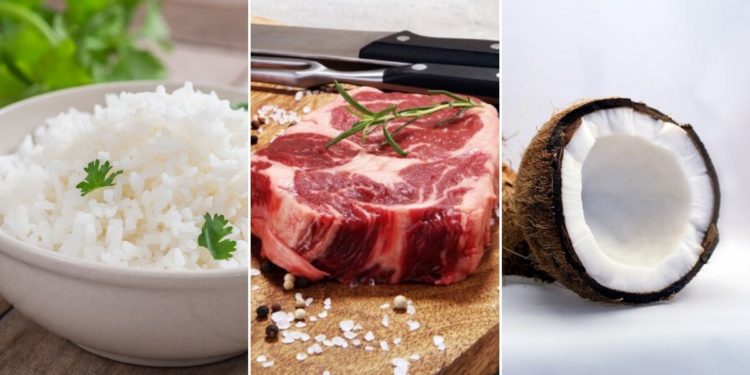
While the basic idea of fasting is the same, there’s many different ways to go about doing it. One of the most common methods of intermittent fasting, known as the Leangains method, is where you fast for 16 hours each day (inclusive of sleep), and eat within an 8-hour window. (Its creator also advises heavy resistance training, but his programming is outside the scope of this article.)
The other, more extreme methods, such as alternate-day fasting and periodic fasting, often involve going 24-48 hours without food. (Water, and usually low-calorie drinks like black coffee, are allowed.)
Each method can have its own merits depending on the individual’s goals, training protocols, and nutrition needs, so it’s important to note that there isn’t any “best method” for practicing IF.
[Read More: The Best Weight Loss Programs]
Time Restricted Feeding Method
One of the most common methods for practicing intermittent fasting is the time restriction method, where you only eat within a certain window. The beauty of this method is that it’s easier to hit your daily caloric goals than the other methods.
The Leangains method of fasting for 16 hours each day, and eating during 8 hours each day, is the most popular type of time restricted fasting.
The beauty of this method is that you can easily adjust it to fit your schedule. If, for example, you go to work from 9-5, you can simply make that a part of your fasting window, so you can be more productive at work, while also reaping the benefits of intermittent fasting.
Alternate-Day Fasting
This type of intermittent fasting involves doing a 24-hour fast followed by a 24-hour feast, on a regular basis. This is a more extreme version of intermittent fasting, that was popularized by Dr. Krista Varady, in her book “The Every Other Day Diet.”
Strict proponents of this method advocate for doing a full 24-hour fast, which means consuming zero calories. Others, however, have taken a modified approach, where they recommend consuming 20-25% of your maintenance calories on “fast” days.
Either way, this can be tougher for some folks than the Leangains method, but it may work for some individuals who are particularly serious about creating a big calorie deficit. It’s still a good idea to track your daily and weekly caloric intakes, however, just to be safe.
48-Hour Fasting
One of the more extreme methods of intermittent fasting involves a full 48-hour fast every single week, after 5 days of eating normally.
Proponents of this method claim that you get the most benefits, due to the length of the fasting period here – and while this can certainly the one of the toughest types of intermittent fasting, many people swear by it.

Benefits of Intermittent Fasting
Believe it or not, while many fad diets often have little evidence to support their efficacy, the IF diet method has a ton of research backing it. From increasing growth hormone levels to helping bodybuilders get lean and shredded, intermittent fasting has a whole host of positive health effects that many people can benefit from.
Here are some benefits of intermittent fasting:
- Improve Insulin Sensitivity
- Increase Human Growth Hormone (HGH)
- Repair Cells (Autophagy)
- Facilitate Fat Loss
- Improve Blood Lipid Profile
- …and more
In fact, there’s a lot of the research behind intermittent fasting, showing that it has a lot of benefits when used properly. Of course, some people choose not to do IF, particularly if they have trouble avoiding a “binge” after their fast ends.
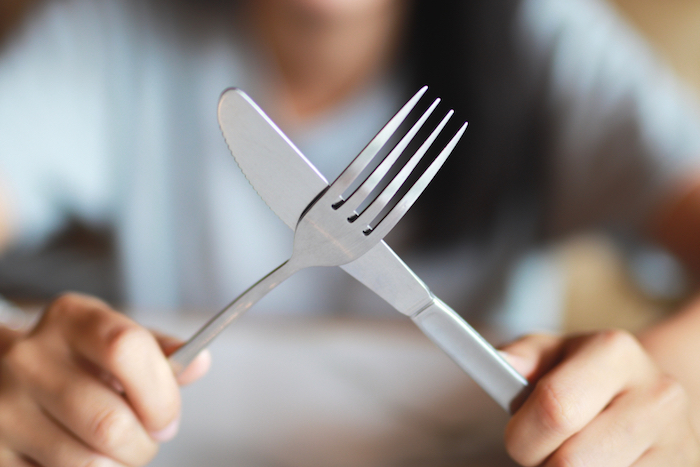
[Read More: The Best Supplements for Weight Loss]
Hormone Benefits
Every bodybuilder knows that hormones are key for building muscle. Without enough growth hormone or testosterone, getting jacked will be extremely difficult! Thankfully however, research suggests that intermittent fasting can help with this.
One study, for example, conducted by the Department of Medicine at the University of Virginia, found that subjects who fasted for a 48-hour period noted an increase in growth hormone levels by a whopping 500%! [1]
“We investigated the dynamic mechanisms underlying this phenomenon in nine normal men by analyzing serum GH concentrations measured in blood obtained at 5-min intervals,” researchers said, concluding that “two days of fasting induced a 5-fold increase in the 24-h endogenous GH production rate.”
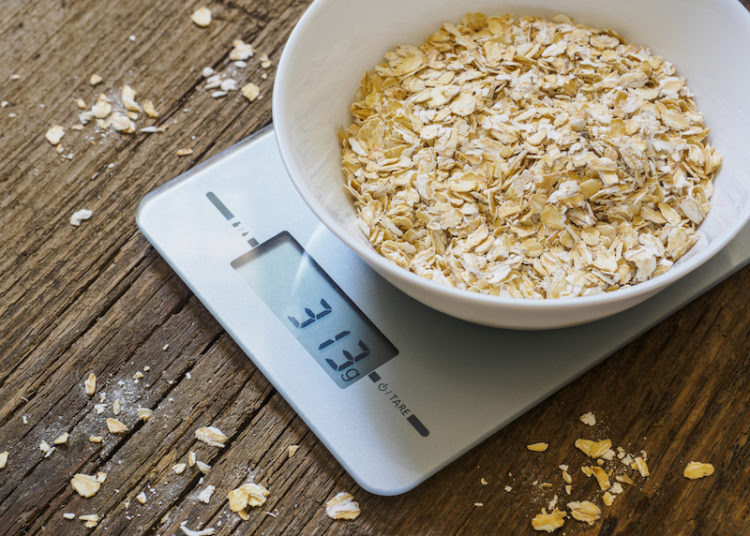
While growth hormone levels did return to baseline once test subjects started eating, a 500% increase in growth hormone for even a day or two has a lot of benefits.
Human growth hormone, or HGH for short, is a critical hormone responsible for building strength, gaining muscle, sex drive, and a ton of other key bodily functions – so anything you can do to boost HGH is a good idea!
Cellular Repair
While “cellular repair” doesn’t sound as sexy as “boosting growth hormone,” it’s equally, if not as important. In fact, most aging-related diseases are caused by cell damage. [2]
One of the major contributors of cell damage is known as oxidative stress, and thankfully, it appears that intermittent fasting can help reduce the harmful effects of it.
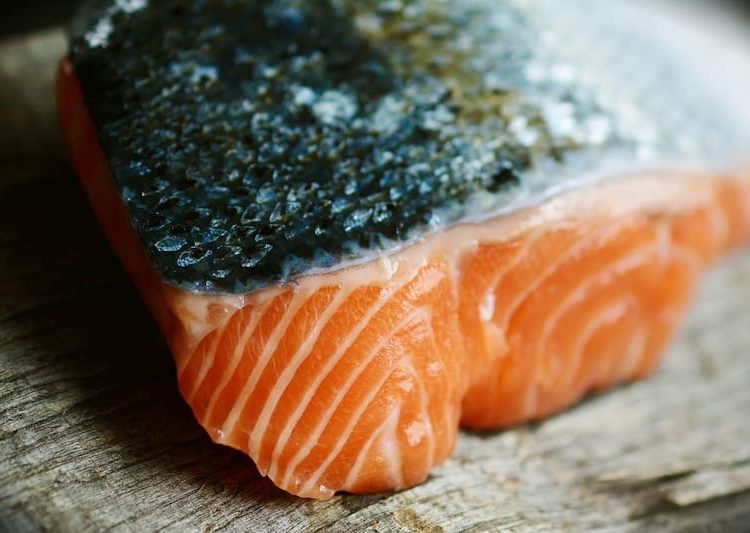
One study, conducted by the Department of Surgery at the Louisiana State University Medical Center, found that test subjects who followed the alternate day fasting method noted “striking reductions in markers of oxidative stress,” while also noting “increased levels of the antioxidant uric acid,” which has been shown to fight oxidative stress. [3]
Calorie restriction is also known to help improve the body’s natural cellular repair functions, so more research needs to be done on which is better for autophagy – but one thing is clear, though. Intermittent fasting does, indeed mitigate oxidative stress!
[Read More: Best Clean Protein Powders, Picked by Nutrition Experts]
Weight Loss
Perhaps one of the best reasons to practice IF is to speed up the process of weight loss. In fact, this is why most people choose to do intermittent fasting.
Thankfully, there’s no shortage of evidence to support the claim that fasting can help speed up your weight loss, as well. As you go through your fast, your body releases a hormone called “norepinephrine” which speeds up metabolism.
In fact, one study, conducted by the Department of Internal Medicine at the University of Vienna, found that “resting energy expenditure increases” during the first stages of fasting, and is “accompanied by an increase in plasma norepinephrine.” [4]
The study didn’t note the exact increase in energy expenditure, but it did note that fasting clearly increases plasma norepinephrine, which speeds up metabolism.

Another study, conducted by the Department of Physiology and Pharmacology, at Queen’s Medical Centre in the UK, found that test subjects’ resting metabolic rate was significantly increased after a 48-hour fasting period. [5]
As if this wasn’t enough, another study conducted by the Department of Kinesiology and Nutrition, at the University of Illinois, Chicago, found that intermittent fasting was more effective than daily calorie restriction at helping people retain muscle during fat loss. [6] This study isn’t the end all be all; some research has found body composition identical among fasters and non-fasters, but it’s compelling nonetheless.
Intermittent fasting’s results may be because of the growth hormone increase, perhaps because it’s a relatively simple system to follow, or perhaps because by eating bigger meals at the end of a fast, many people end up feeling more satiated than if they had snacks or calorie-controlled meals during the day. Of course, all these results depend on the individual.
Heart Health
With heart disease being the number one cause of death in the US, anything we can do to improve our heart health would be worth our time.
One study on fasting found that a modified alternate-day fasting protocol significantly decreased total cholesterol, LDL cholesterol, and triglycerides in test subjects. [7]
Normally an alternate-day fasting protocol requires a 24-hour fasting period followed by a 24-hour feasting period, but in this study, the traditional ADF protocol was modified.
On “fasting days” test subjects were allowed to eat 20-25% of their caloric energy needs rather than doing a full 24-hour fast, and even so, the results were quite shocking.
“Total cholesterol, LDL cholesterol, and triacylglycerol concentrations decreased by 21%, 25%, and 32% respectively,” after 8 weeks of following a modified ADF diet.

The researchers also noted that while HDL cholesterol stayed the same in test subjects, systolic blood pressure decreased from an average of 8 points.
In addition to this, a meta-study published in the highly prestigious “Research in Endocrinology” journal, stated that the current evidence shows that IF “is capable of promoting weight-loss and/or favourably influencing an array of cardiometabolic health indices,” or in other words, markers of heart health. [8]
Many of these benefits can also be had by simply practicing caloric restriction. Remember that there’s many different ways to skin a cat, and the same goes for weight loss and muscle gain. If intermittent fasting works for you, then great! If not, then consider simply doing caloric restriction to lose weight. Both will work.
[Read More: Best Fat Burners, With Expert Advice from an RD]
Intermittent Fasting Drawbacks
Now, while intermittent fasting has a ton of benefits, it’s important to understand that it still may not be for everyone! Each person is unique, and we all respond differently to different diets, depending on our caloric, training, and lifestyle needs.
There’s two main concerns with intermittent fasting for bodybuilders:
- It’s Hard to Bulk (Especially For Hardgainers)
- Working Out Fasted May Be Difficult For Some
So, depending on your goals, you may want to reconsider IF. That being said, I’ve been doing intermittent fasting combined with bodybuilding for years now, and I absolutely love it. It lets me stay lean year-round, even on a winter bulk.
Bulking on Intermittent Fasting
One of the major drawbacks of IF is that it can be very hard to hit your daily macros if you’re doing it. Hardgainers often have a difficult time eating enough food each day to bulk up, so restricting your eating window can make it even harder.
You can forget about the alternate day fasting and 48-hour fasting methods if you’re a hardgainer, as well. If you have a hard time getting enough calories on a daily basis, there’s no way you’ll even get close to your recommended calories if you’re fasting for 48 hours or more each week.

That being said, if you can do the 16/8 intermittent fasting method while still getting enough calories in for your goals, then by all means, do it. You’ll not only reap the rewards of intermittent fasting, but you’ll be able to bulk up while getting them, too.
Working Out Fasted
Another concern for bodybuilders when it comes to intermittent fasting, is that you may have to work out on an empty stomach. While there’s some research to suggest that fasted workouts may be beneficial [9], most bodybuilders don’t do them.
If you’re trying to hit personal records, it’s especially important that you have good pre and post workout nutrition, which is difficult to do while IF. If you’re more concerned with aesthetics however, working out fasted may be a good idea, as it generally leads to more fat loss, which means a more shredded physique.
Some people choose to time their fasting windows, so that they fast during the day, have their first meal, and then go to the gym 30-45 minutes afterwards. Both of these methods will work, depending on if you like to hit the gym fasted or not.
Should Bodybuilders Do Intermittent Fasting?
Now, the question that we’ve all been waiting for… should bodybuilders do intermittent fasting? Well, unfortunately, there’s no “one size fits all” answer.
The answer to this question will depend on how serious of a bodybuilder you are. If you’re training to become an IFBB pro, for example, it’s recommended that you avoid intermittent fasting, simply because you need to feed your body every 2-4 hours to maintain absolutely maximum levels of muscle protein synthesis.

That being said, there are still some ways that intermittent fasting can help the average bodybuilder, who isn’t too concerned about competing.
How Intermittent Fasting Can Help Bodybuilders
While intermittent fasting may harm professional bodybuilders and athletes, it can actually help amateur bodybuilders, who just want to look good.
By doing intermittent fasting in addition to a good bulking diet and workout routine, you can reap a ton of rewards, such as better heart health, and boosted hormones.
Here are some quick benefits of doing a 16/8 intermittent fasting protocol that all amateur bodybuilders can benefit from:
- Increased Growth Hormone
- Decreased Cholesterol
- Less Body Inflammation
- Increased Fat Loss
If you’re a bodybuilder, then doing the 16/8 intermittent fasting method is going to be your best bet. Anything more extreme than this, and it will be very difficult to meet your daily caloric needs.

Intermittent Fasting For Pre-Competition
The one time that intermittent fasting may be able to help professional bodybuilders, is when they’re trying to cut down before a competition. If this is the case, then intermittent fasting can be a useful asset, particularly as it may help with lipolysis and increase your daily energy expenditure.
The major key here is to still get enough protein and calories, which shouldn’t be hard if you’re consuming good foods, in addition to a good whey protein when needed. In general, you should aim to consume 1 gram of protein per pound of your goal lean body weight. (Although this can vary — check out our guide on protein intake for more.)
For a pre-competition cut, the 16/8 intermittent fasting method is the best by far, because it will essentially allow you to do 3 things effectively:
- Still Hit Your Daily Caloric Needs
- Increase Metabolism (And By Extent Fat Loss)
- Help Retain Muscle Mass
So, if you’re a natural professional bodybuilder, doing intermittent fasting may be a great alternative to the conventional “6 meals a day” diet that most bodybuilders follow.
How to Use Intermittent Fasting The Right Way
Thankfully, most of our readers are not IFBB pros, but rather men and women looking to simply get in great shape and feel strong year-round. If that’s the case, you can still reap a lot of rewards from intermittent fasting, by combining it with carb cycling.
In a nutshell, carb cycling is when you time your carbohydrate intake, so that it’s higher on days you work out.
When combined with intermittent fasting, carbohydrate cycling can be a great way to bulk up and build muscle while simultaneously losing fat. It may sound too good to be true to some people, but the science is there to back it. [10] [11] [12]

Combining Carb-Cycling With Intermittent Fasting
As I said previously, the biggest drawback of intermittent fasting is that it’s hard to meet your daily caloric needs as a hardgainer. That being said, if you combine carb-cycling with intermittent fasting, it becomes a lot easier.
To combine the two, a hardgainer would simply eat a HUGE, carbohydrate-dense meal post-workout, and might even use it as a cheat meal. This will make it easier to hit your daily macro requirements, while still following the 16/8 intermittent fasting protocol.
So, for a hardgainer, if your daily caloric intake goal was 3,500 calories, your meal planning and intermittent fasting protocol might look something like this:
- 8am: Wake Up After 8-Hour Sleep Fast
- 8am-4pm: Continue Fasting While Awake
- 4pm: First Meal of the Day (Pre-Workout 1,000 Calorie Meal)
- 5pm-7pm: Hit The Gym
- 7pm: Second Meal of the Day (Post-Workout 1,500 Calorie Meal)
- 9pm: Third Meal of the Day (750 Calorie Meal)
- 11pm: Fourth Meal of the Day (750 Calorie Meal
So, in total, you would still hit your 3,500 calorie goal for the day, AND you would do it while gaining the benefits of intermittent fasting (such as increased growth hormone).
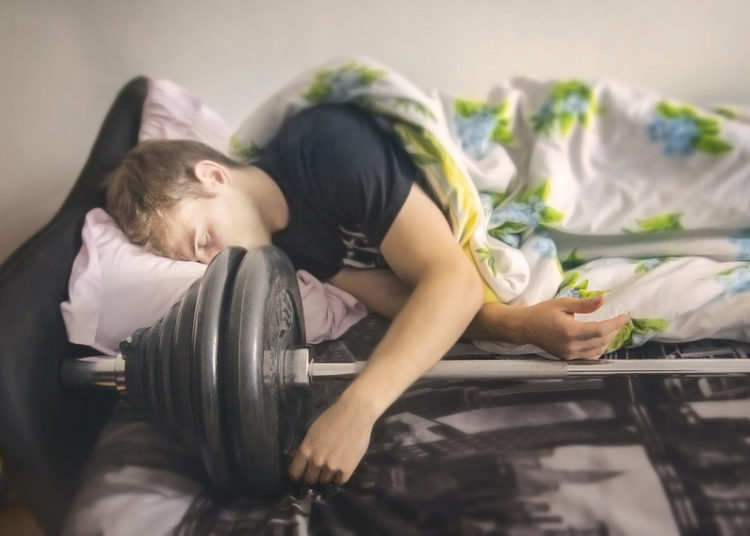
Intermittent Fasting on Rest Days
Another way that amateur bodybuilders and athletes would be able to do intermittent fasting, would be by doing a 24-hour fast on their rest days. This can, admittedly, be a tougher version of IF, but it can still work.
The way to do this would be to calculate your weekly caloric goal, and then make sure to eat enough calories on your workout days, so that you still hit it.
Using the previous example of a hardgainer, let’s say that his daily caloric goal would be 3,500 calories, which means his weekly caloric goal would be 24,500 calories.
Using this example, one week of eating might look like the following:
- Monday: Starting Strength Workout A (Eat 4,900 Calories)
- Tuesday: Rest Day
- Wednesday: Starting Strength Workout B (Eat 4,900 Calories)
- Thursday: Rest Day
- Friday: Starting Strength Workout A (Eat 4,900 Calories)
- Saturday: Rest Day
- Sunday: Rest Day (Eat 4,900 Calories)
In total, the average daily caloric intake would equal 3,500 calories, so in this example, a hardgainer could still get the benefits of a 24-hour fast, while also bulking up.

Intermittent Fasting For Natural Bodybuilders
Intermittent fasting is generally going to be best for natural bodybuilders, who are looking to get stronger, build muscle, lose fat, and look good in general.
The best and easiest way to start reaping the rewards of intermittent fasting, is to simply start following the 16/8 IF protocol. All you do is fast for the first 8 hours of your day, and then you eat your daily caloric goal intake in the next 8 hours.
This is something that’s easy to start doing, and that any bodybuilder can immediately apply to his life, with very little fuss or strategy. If you hit the gym first thing in the morning, consider taking a pre-workout to suppress hunger and increase energy.
Conclusion
All in all, intermittent fasting can be a useful tool that men and women can use to improve their overall health, hormone profile, lipid profile, and appearance.
Simply following a 16/8 IF protocol can yield benefits — in my opinion, fasting works, plain and simple, and you can reap the rewards of it within a matter of days.
Intermittent fasting will work best for natural bodybuilders, and those who prefer a couple of larger meals to small meals throughout the day. If you’re an IFBB pro, or are serious about competing, following a traditional “6 meals a day” diet is probably best for you.
If you do want to try intermittent fasting, we recommend you start off by just skipping breakfast to see how you feel. From there, slowly ratchet your fast up until you’re hitting the full 8-hour waking fast, as is in line with the 16/8 IF method.
From here, if you want to try a full 24-hour or even 48-hour fast, you can feel free to do so, but it’s always best if you check with your medical healthcare practitioner first.
Featured image: All best fitness is here / Shutterstock
References
- Hartman, ML, et al. “Augmented Growth Hormone (GH) Secretory Burst Frequency and Amplitude Mediate Enhanced GH Secretion during a Two-Day Fast in Normal Men.” The Journal of Clinical Endocrinology and Metabolism, vol. 74, no. 4, 1 Apr. 1992, pp. 757–765., academic.oup.com/jcem/article-abstract/74/4/757/3004645.
- De Bont, R, and N van Larebeke. “Endogenous DNA Damage in Humans: a Review of Quantitative Data.” Oxford Academic, Oxford University Press, 1 May 2004, academic.oup.com/mutage/article/19/3/169/1482185.
- Johnson, James B., et al. “Alternate Day Calorie Restriction Improves Clinical Findings and Reduces Markers of Oxidative Stress and Inflammation in Overweight Adults with Moderate Asthma.” Free Radical Biology and Medicine, Pergamon Press, 14 Dec. 2006, www.sciencedirect.com/science/article/abs/pii/S089158490600801X.
- Zauner, Christian, et al. “Resting Energy Expenditure in Short-Term Starvation Is Increased as a Result of an Increase in Serum Norepinephrine.” Oxford Academic, Oxford University Press, 1 June 2000, academic.oup.com/ajcn/article/71/6/1511/4729485.
- Mansell, P. I., et al. “Enhanced Thermogenic Response to Epinephrine after 48-h Starvation in Humans.” American Journal of Physiology-Regulatory, Integrative and Comparative Physiology, 1 Jan. 1990, journals.physiology.org/doi/abs/10.1152/ajpregu.1990.258.1.R87.
- Varady, K. A. “Intermittent versus Daily Calorie Restriction: Which Diet Regimen Is More Effective for Weight Loss?” Wiley Online Library, John Wiley & Sons, Ltd, 17 Mar. 2011, onlinelibrary.wiley.com/doi/full/10.1111/j.1467-789X.2011.00873.x.
- Varady, Kristin A, et al. “Short-Term Modified Alternate-Day Fasting: a Novel Dietary Strategy for Weight Loss and Cardioprotection in Obese Adults.” The American Journal of Clinical Nutrition, Oxford University Press, 30 Sept. 2009, academic.oup.com/ajcn/article/90/5/1138/4598070.
- Antoni, Rona, et al. “The Effects of Intermittent Energy Restriction on Indices of Cardiometabolic Health.” IBIMA Publishing, Research in Endocrinology, 28 June 2014, ibimapublishing.com/articles/ENDO/2014/459119/.
- Schoenfeld, Brad Jon, et al. “Body Composition Changes Associated with Fasted versus Non-Fasted Aerobic Exercise.” Biomed Central, Journal of the International Society of Sports Nutrition, 18 Nov. 2014, jissn.biomedcentral.com/articles/10.1186/s12970-014-0054-7.
- Coyle, Edward F. “Timing and Method of Increased Carbohydrate Intake to Cope with Heavy Training, Competition and Recovery.” Journal of Sports Sciences, vol. 9, no. sup1, 1991, pp. 29–52., doi:10.1080/02640419108729865.
- McConell G, et al. Effect of timing of carbohydrate ingestion on endurance exercise performance. Med Sci Sports Exerc. 1996 Oct;28(10):1300-4
- Reaven, G M. “Effects of Differences in Amount and Kind of Dietary Carbohydrate on Plasma Glucose and Insulin Responses in Man.” The American Journal of Clinical Nutrition, vol. 32, no. 12, 1 Dec. 1979, pp. 2568–2578., doi:https://doi.org/10.1093/ajcn/32.12.2568.